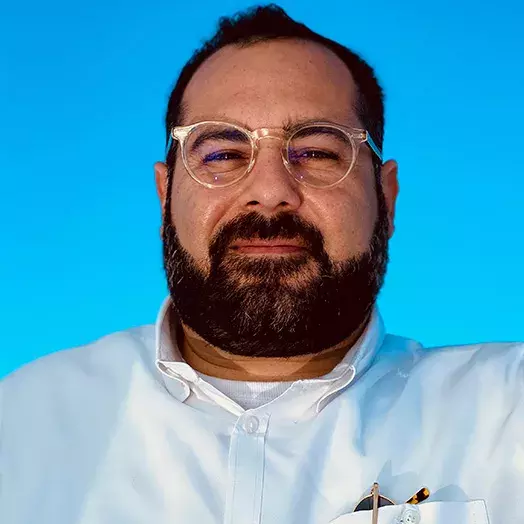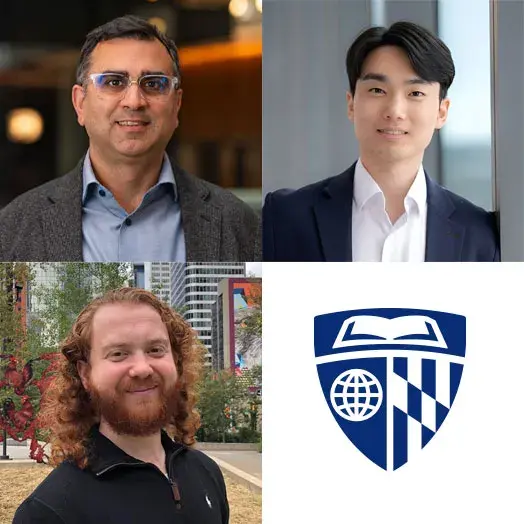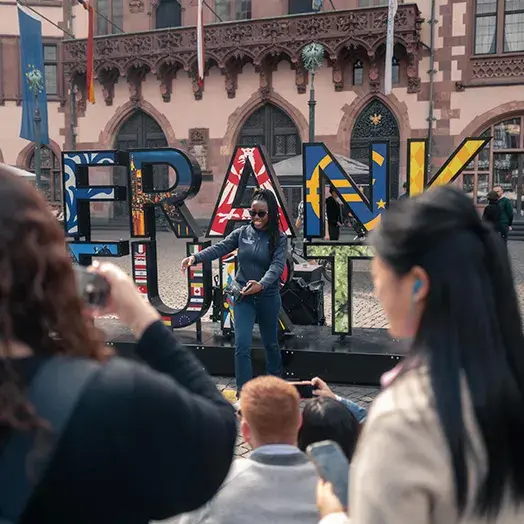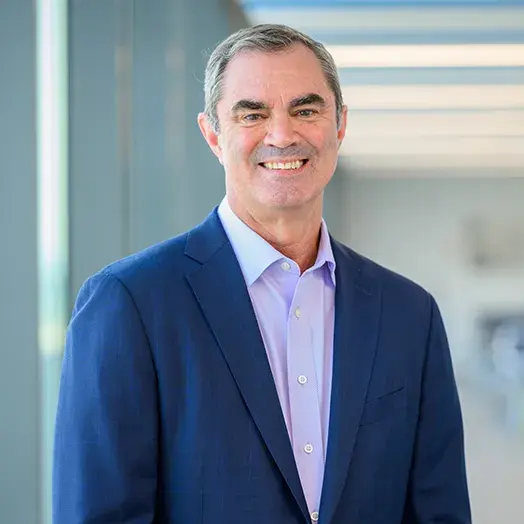Shervin Esfahani (MBA’14) makes his company’s AI work an experiential learning opportunity for Carey students.

A different kind of 10-year reunion
A critical ah-ha moment for graduate students is when they discover a field of study that sparks their passion. Ten years ago, when Shervin Esfahani (MBA ’14) was working in biology research, he discovered his calling in the business of health and looked for ways to break into the growing sector.
“Hopkins was fully aligned with what I thought would be the best path for me,” Esfahani said.
“At the Carey Business School, I found I loved marketing and thought it was an opportunity for me to work with the latest and greatest in technology and innovation, too.”
While Esfahani was a student, he got an internship with a pharmaceutical company in Baltimore. He advanced into a full-time role in product marketing, launching drugs and medical devices, before shifting into health care IT.
Today Esfahani is the vice president of Global Marketing and Communications for Rekor, an innovative software development company that uses artificial Intelligence to deliver roadway intelligence.
Student to teacher
In spring 2024, Esfahani brought his company’s work to Carey through the Innovation Field Project, an experiential learning project that identifies critical business challenges and new opportunities for corporate sponsors by pairing them with full-time MBA students as consultants.
It was a homecoming of sorts. As a student in what was then known as the Innovation for Humanity program, Esfahani traveled to India where he studied a real-time issue with community water systems and worked with locals to develop solutions.
“It was one of my favorite things that we did when I was at Carey,” he said. “The value was really unmatched because we traveled overseas, and I got to spend time in India. For me, that was just such a unique experience that made me understand global issues more broadly, and how that changes international work.”
Having that experience as a Carey student a decade ago made Esfahani all the more excited when Carey Director of Experiential Learning Dan Sheats approached him about being a corporate partner and providing a similar experience for full-time MBA students in the IFP program.
“It became clear it would be a great fit,” Esfahani said. “We’re a technology company, we’re local, we’re focused on roadway intelligence, and we leverage AI. From a student standpoint, Rekor meets a lot of needs for students who are learning and interested in how businesses function and the everyday challenges that need to be solved.”
Esfahani asked the Carey students to complete an assessment focused on an ESG, or environmental, social, and governance, component of Rekor. Specifically, he wanted them to study how leveraging AI in the urban mobility space can be more sustainable than the legacy “outdated, manual, dirty processes.”
“Carey’s students confirmed in a really sophisticated way the suspicion that our technology is more sustainable and has a much smaller environmental impact,” Esfahani said.
This type of cross-collaboration benefitted the students too. They learned how to engage with executive leadership and persuade management to care about their project. Students were also integrated across the organization and had hands-on tasks working with Rekor engineers, software developers, AI testers, and more.
“Working with Rekor was an absolutely wonderful experience,” said Carey MBA candidate Andre Seo. “I personally went into this IFP project with no real experience within this industry, yet the welcoming leadership, as well as prompt communications by Shervin and the Rekor team allowed us to gain invaluable knowledge about the company as well as the tasks our teams were given. Shervin paid particular attention to us during our on-site visit as well, creating a great agenda to meet with all departments of leadership within Rekor, making this a great learning opportunity. Shervin most definitely paved the way for our team’s shared learning and growth.”
Two entities, one mission
Esfahani hopes to continue to build a relationship between his alma mater and Rekor to create more meaningful student experiences and propel Rekor’s mission forward.
“My goal has been to position Rekor at the forefront of roadway intelligence,” he said. “We need to be smarter about the implementation of technology to make transportation safer, more equitable, and more sustainable. Incidents like crashes, or irregular congestion, you know, these are all things that we can understand and respond to better, but it requires the fusion of many different disparate data sources to do that. We can't do that in an effective way without AI.”


